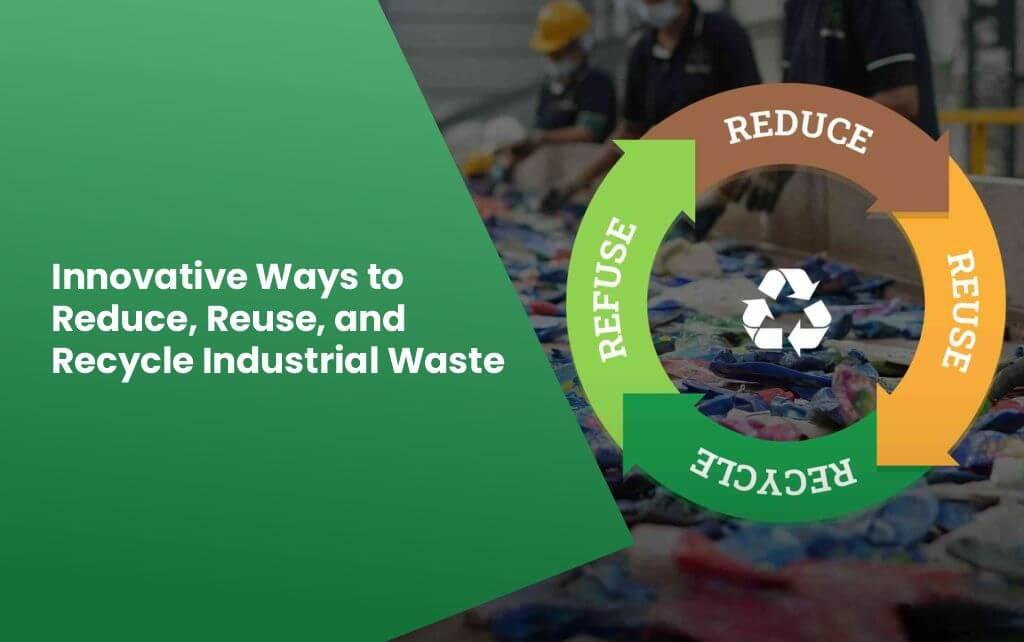Notifications

4 minutes, 1 second
-10 Views 0 Comments 0 Likes 0 Reviews

India’s industrial sector plays a vital role in the country’s economic progress. From textiles and steel to chemicals and food processing, industries contribute significantly to GDP and employment. However, this growth brings with it the serious challenge of managing industrial waste in India. Materials such as metals, plastics, chemical residues, and organic waste are often improperly disposed of, causing pollution and health hazards.
To counter this, companies are now exploring sustainable waste management strategies focusing on the 3Rs: Reduce, Reuse, and Recycle. These innovative approaches not only protect the environment but also boost operational efficiency and open up economic opportunities.
1. Lean Manufacturing & Process Optimization
Minimizing waste begins with efficient production. Lean manufacturing helps reduce excess material use, defects, and energy consumption. In sectors like automotive and textiles, just-in-time inventory systems and digitized supply chains are proving beneficial in reducing overproduction and waste.
2. Technology Modernization
Outdated machinery contributes to significant resource wastage. Investing in energy-efficient equipment, automated dosing systems, and precision tools helps minimize errors and reduce raw material loss. For Indian SMEs, leveraging government subsidies to upgrade technology can drive major improvements.
3. Workforce Training
Educating staff on sustainable practices leads to better resource handling. In labour-intensive industries, employee-led initiatives and waste audits can identify reduction opportunities that management might overlook.
1. Industrial Symbiosis
One factory’s waste can be another’s raw material. Textile scraps can be turned into paper products, and food waste into organic fertilizers. This circular economy approach is already gaining traction in industrial clusters in Gujarat and Maharashtra.
2. Construction Material Substitutes
By-products like fly ash, slag, and gypsum are widely used in road construction and building materials, reducing landfill use and cutting costs.
3. Water Reuse
Industries like tanneries and dyeing units can treat wastewater using zero-liquid discharge (ZLD) systems and reuse it, thus conserving freshwater and reducing pollution.
1. Advanced Plastic Recycling
Chemical recycling processes allow plastics to be broken down to monomers and reused in high-quality applications such as packaging and textiles. India urgently needs to scale up this approach given its growing plastic waste crisis.
2. Metal Recycling
Scrap metal recycling is both eco-friendly and cost-effective. Using electric arc furnaces and dedicated collection centers can help industries close the loop in metal use.
3. Waste-to-Energy
Agro-based industries are using anaerobic digesters to convert organic waste into biogas, providing renewable energy and reducing dependency on fossil fuels.
IoT and Blockchain are being adopted to monitor waste in real-time and ensure traceability. On the policy side, India’s EPR rules and Swachh Bharat Mission are encouraging industries to adopt greener practices.
With the right mix of innovation, training, and collaboration, industrial waste management in India can evolve into a circular, resource-efficient system. A collective push from industries, communities, and government can create a cleaner, greener future for all.
#IndustrialWasteIndia #SustainableManufacturing #RecycleIndia #WasteManagementSolutions #CircularEconomyIndia

